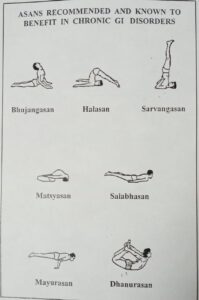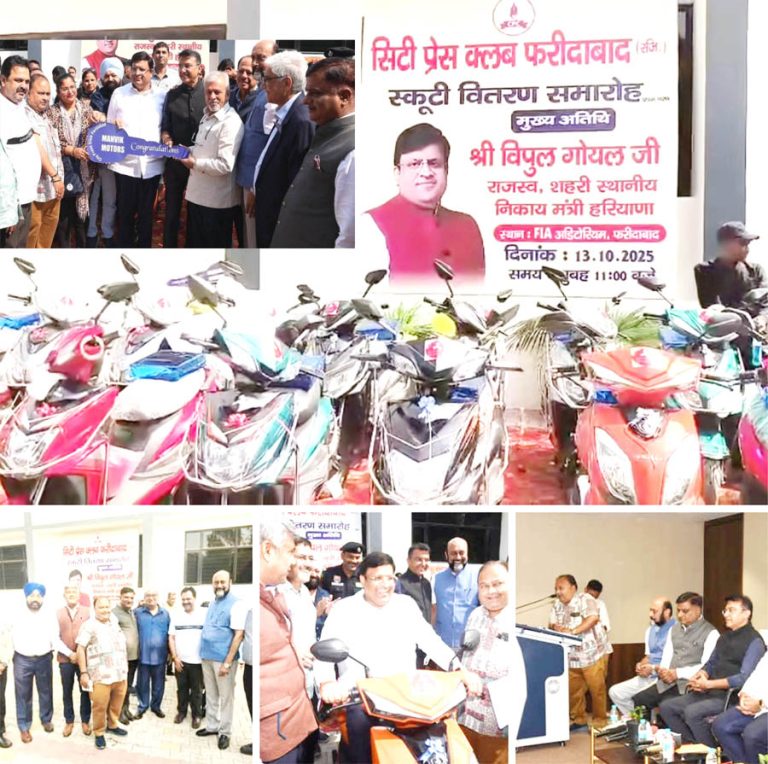
सलोनी चावला
on 21st June – World Yoga Day
The Digestive system deals with the reception of food and with the preparation of it for assimilation by the body. Complete digestion of food in the alimentary canal calls for swallowing, movement of food by peristalsis down the alimentary canal, partial digestion of food in mouth and stomach and rest of the digestion in the intestine. Stress can affect any part of the digestive system through various complex mechanisms and cause a change in any of its processes to ultimately have an effect on the complete digestion of food.
THE EFFECTS
Mouth
Studies have shown stressors such as fear, guilt and anxiety to produce the following effects in the mouth :-
* Suppression of saliva leading to dry mouth;
* Decrease in pH of saliva making it more acidic;
* Increase in viscosity of saliva due to the release of high molecular weight glycoproteins thus inhibiting preliminary digestion;
* Various gum diseases especially necrotising ulcerative gingivitis (NUG);
* Angioneurotic oedema (an allergic swelling);
* Ulcers in mouth;
* Dental caries – the cause of dental caries could be attributed to to the production of highly viscous low volume acidic saliva.
On the other hand, studies have shown opposite effects to be produced during periods of relaxation.
Oesophagus
The oesophagus transports the food into the stomach by regulated peristaltic contractions and prevents the reflux of gastric contents back into the oesophagus. A dysfunction may be produced in any of the the functions by stress. Studies have shown stress situations for example examination stress to produce effects such as hypermotility / hypomotility of the oesophagus, dysphagia, regurgitation of oesophageal contents and chest pain.
Stomach and Intestine
Stress not only affects the movement of food by peristalsis down the stomach and intestine but also its digestion in both these organs. Stress situations such as fear, anger, emotional conflict, frustration, depression, over perseverance, shock, restraint, artificial induction of vertigo and discussions about problems of adjustment in life have been shown to produce effects like hyper / hypomotility of the stomach increased / decreased gastric juice secretion, hyper / hypomotility of the intestine, decreased mucous formation, irritation of the gut lining, formation of ulcers, vascular engorgement, oedema and swelling, diarrhoea, constipation and decreased digestion ultimately.
THE BASIC MECHANISM
The origin of the bodily changes occurring as a result of stress can be traced up to the cerebral cortex in the central nervous system. All the stressful stimuli converge at the psychic centres in the the cerebral cortex and then reach the hypothalamus in the the limbic system, involved in the behavioural and emotional reactions of the body. It is through this system that changes are produced in the autonomic nervous system as well as the endocrine apparatus causing the release of of hormones such as corticosteroids and catecholamines. This results in the various undesirable changes produced in the gut during stress.
The effects vary in kind and intensity from individual to individual as well as from time to time depending upon the the nature, duration and intensity of the stress stimulus and the individual makeup of a person.
THE SAFETY GUARD : STRESS MANAGEMENT
The road to safety carries various methods to combat the enemy and attain physical, mental and social well being. Of these, YOGA, which can be defined as the science of mental control and has been practised in India for many centuries seems to be the earliest and the most effective method for providing peace and tranquility.
The great Sage Patanjali had advocated 8 types of Yogic practices namely (i) Yam (non violence) (ii) Niyam (disciplined acts) (iii) Aasan (physical postures) (iv) Pranayam (breathing exercises) (v) Pratyahar (restraining of senses) (vi) Dharna (fixation of mind) (vii) Dhyaan (meditation) and (viii) Samadhi (deep meditation). Practising all the the 8 steps in an integrated manner has been stated to be the only way of achieving full benefit from yoga.
The benefits of Yoga in Stress and Digestion are tremendous : –
* Yoga reduces the over activity of the Central Nervous System and the the Autonomic Nervous System during all period of stress.
* Yogic practices help not only in reversing the process of diseases but also improve the resistance of the body at the psycho – physiological level.
* Yoga improves the power of cerebral cortex resulting in a better control over the the autonomic and visceral functions of the body.
* Various aasans and meditation have shown to alter the release of hormones responsible for producing undesirable effects during stress periods.
* Some of the Assans that have been recommended and known to have benefited in chronic gastro-intestinal disorders are Bhujangasan, Halasan, Sarvangasan, Matsyasan, Salabhasan, Mayurasan and Dhanurasan.(refer diagram).
* Electroencephalogram (EEG) studies during breathing exercises have revealed increased Alpha waves throughout the period suggesting enhanced mental tranquility of the person during the period of Pranayam.
Since the effects of yoga are short lived and have no cumulative effect, a regular practice is indispensable for stress management. The type and method of yogic practice to be adopted should be chosen depending upon the body and mind constitution of a person and a trained yoga specialist or teacher should be consulted for the same.
It may not be possible for everyone to follow all the practices in everyday life. Nevertheless, following as much as one can in the given circumstances, could certainly go a long way in helping one cope with stress better and have a longer, happier life.
For the occasion of World Yoga Day. Saloni Chawla written the following article.
21st June happens to be World Yoga Day. I am a Nutritionist cum Dietitian and have done lot of research work on Stress. I also presented a paper in the 1st International Conference on ‘Yoga in Daily Life’ organized by Vivekananda Kendra Yoga Research Foundation, Bangalore in Dec.,1996 at Adhyatma Sadhna Kendra, New Delhi.
 Saloni Chawla
Saloni Chawla
.





